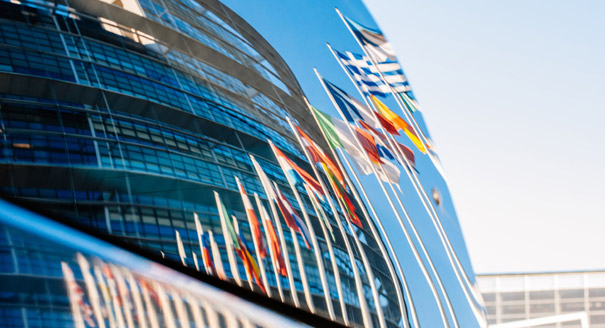These days, political life in the European Union is determined by three core facts. First, in the policy fields that cause the biggest trouble to Europeans—fiscal policy (think euro crisis), foreign policy (think Russia, Ukraine, Syria, China, Turkey, and so on), and citizenship (think refugees, migration, integration, and asylum)—genuine European integration is weak or nonexistent.
Second, an increasing number of people and governments believe that it is not in their interests to solve these issues in close cooperation with their European partners, but that they are better off alone. In fact, some believe that there is already too much integration, and that this is to blame for a fair share of the problems Europe faces today.
And third, it is entirely unclear whether the tremendous political forces at work in fiscal matters, foreign policy, and citizenship will in the end bring Europe further together or push it further apart.
Traditionally, when conundrums are big and dilemmas are painful, Europeans’ response has been to muddle through. In fact, the entire institutional setup the EU created for itself in Brussels is an elaborate and finely tuned, multilayered, interlocking machinery designed to take the union from muddling to muddling through. It often looks like a mess, but contrary to common perception, the EU also has a great ability to create results that, for the most part, serve Europeans well.
The problem is that the essential ingredient for successful muddling through is political compromise. Without the oil of compromise, poured in ample amounts into the cogs of the decisionmaking engine, things easily grind to a halt.
Compromise—giving up parts of one’s goals to achieve a solution that might not be ideal but is still much better than getting nothing—is readily available only under specific circumstances. Compromise is easy to find when an issue is important but not existential. Or when it does not touch on core elements of political identity: fiscal issues, foreign policy, and citizenship. Or when self-interest is not narrowly defined and short-termist, as it tends to be in times of duress.
And this is the double whammy against the EU today: On the one hand, the three major crises hitting Europe (the eurozone, foreign policy, and refugees) attack the core of what makes a nation, and the obvious remedies—more cooperation, more burden sharing, more solidarity, and more integration—attack that core even further. The remedy looks like the very illness Europe wants to fight.
On the other hand, these three scourges are big enough to be questions of survival. An exploding currency could destroy entire economies and kill off the EU. Tensions with Russia touch on questions of war and peace in Europe. Millions of refugees (and the numbers are likely to grow) trigger xenophobia and undermine civilized politics back home.
The most important lesson these crises have to offer so far will not surprise realists, but it will stun those who thought that the days of the nation-state were numbered and that postmodern, transnational governance was the new name of the game. What Europeans need to recognize is that the majority of people, in times of crisis, turn to the nation for protection, for accountability, and for a sense of belonging.
Every single day, the Brussels machine—just like the UN Security Council, the World Trade Organization, or the Organization for Security and Cooperation in Europe—proves that the interests of nation-states are what matters most in driving international politics. If Europeans want to enable the EU to cope with the existential crises around it, they need to expand the union by revising its treaties, while keeping nations intact. European integration will be built in line with national interests, or it will not be built.
In the muddling-through machinery of Brussels, this will be the biggest compromise of all. How can the EU organize the urgently needed supranational great leap forward—be it on political union to save the euro, on energy union to reduce strategic dependency on others, or on asylum policy to enable the management of refugee flows—in line with strong national identities that matter?
Integrationists and federalists tend to believe that only the nations will have to change to make this shift possible. If only they realized that to save your sovereignty, you need to share it. But while that remains fundamentally true, it is only one half of the equation.
The other half is that the EU will need to be a very different kind of organization if it really wants nations to give up more of their sovereignty. The convenient unaccountability of the European Parliament would have to change dramatically. Real governance would have to be brought into the European Commission, so that it will become the true guardian of the treaties again, and less of a guardian of its own self-interest.
If Europe wants to break out of its dilemma in which the remedy looks like the illness, it won’t be enough to make the medicine taste less bitter. There also needs to be more accountability on the part of the doctor who administers it.
To answer Europe’s crises with more integration, which I believe is what Europe needs, Europeans must also change the place into which their sovereignty is pooled. If, as a result of such integration, sovereignty is lost in the democratic institutions of government back home, then the new vessels of sovereignty in Brussels must be at least as democratic and accountable, if not more so, than those at the national level. And the national level will have to get a whole lot more scrutiny than it has now.
This is the real reason for treaty change in the EU today. If you want more Europe, you need a different Europe.








